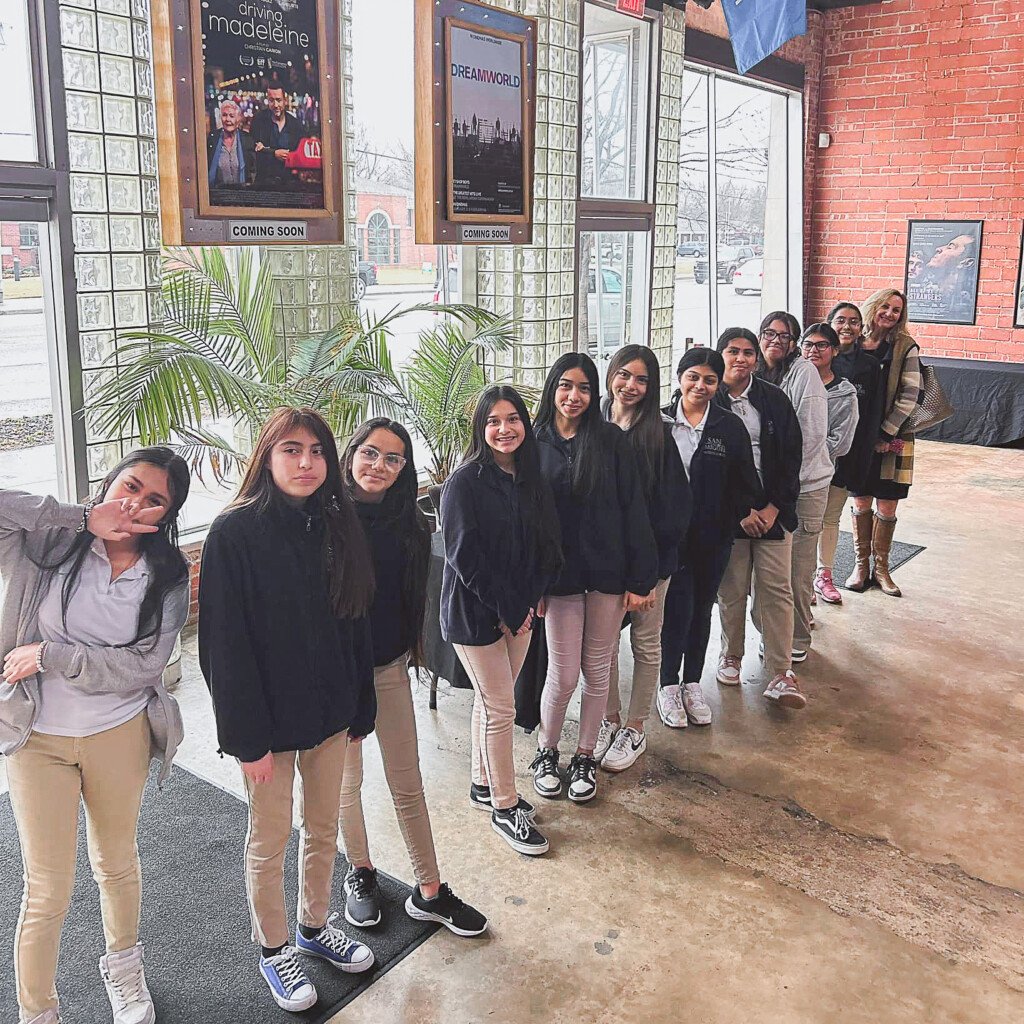A Cinematic Journey: Circle Cinema’s Free Educational Screenings Program Enriches Students

Nestled in the heart of Tulsa along historic Route 66, Circle Cinema is more than just a movie theater. As Tulsa’s only independent, nonprofit arthouse theater, it is a living piece of history—a venue where the past and present merge to create unique and exciting educational experiences for students. With its nearly century-long legacy, Circle Cinema offers schools a remarkable opportunity to bring history and curriculum to life through its free Educational Screenings program.
A Glimpse into History: The Legacy of Circle Cinema
Circle Cinema, established in 1928, is Tulsa’s oldest operational theater. Originally celebrated as the city’s first “suburban” theater, it quickly became a beloved neighborhood venue, showing first-run films that drew crowds across the area. Over the decades, Circle Cinema has witnessed the transformation of Tulsa and the evolution of cinema itself. The theater has remained a steadfast symbol of community, culture and education.
Today, Circle Cinema embraces its historic roots while serving as a modern-day hub for education and enrichment. The theater’s unique position on Route 66, original architectural charm, and commitment to showcasing independent and classic films make it an unparalleled setting for educational field trips.
Pairing Curriculum with Cinema: A Dynamic Learning Experience
Circle Cinema’s free Educational Screenings program is a testament to the power of film as a teaching tool. Education has always been a cornerstone of Circle Cinema’s mission, and this program, which began organically with requests from educators, has blossomed into a valuable resource for schools throughout the region. It’s a tool that brings history and curriculum to life, engaging students in a way that traditional methods often can’t.
One of the program’s most compelling aspects is its ability to pair films with classroom curriculum. For example, teachers who are exploring themes in literature with their students can enhance their lessons by screening films like The Outsiders at Circle Cinema. This classic film, which has deep roots in Tulsa, offers students a tangible connection to the text they study in class.
By watching the movie in the same city where it was filmed and seeing locations they might pass by daily, students gain a deeper understanding of the story and its context.
“The moving image can capture a young person’s attention in a way that complements traditional learning,” says Brent Ortolani, Circle Cinema’s executive director. “Film has the unique ability to engage students and bring subjects to life, making abstract concepts more concrete and relatable.”
David Kimball, community outreach director, echoes this sentiment, highlighting the program’s flexibility in meeting the needs of different subjects. “We can find a film to fit any curriculum,” he says. “Whether it’s history, science, literature or even civics, there’s a film that can enhance students’ understanding of the material.”
A Day of Discovery: The Full Circle Cinema Experience
For many students, a trip to Circle Cinema is also an opportunity to explore Tulsa in a new way. Schools can create a full day of learning by pairing a film screening with visits to other historic sites in the area, such as The Outsiders House Museum. This allows students to see the film and visit the locations where it was shot, deepening their connection to the story and the city.
Kimball recalls one particularly memorable experience when students dressed up as characters from The Outsiders for their visit. “They were so excited,” he says. “They took pictures in front of the theater’s marquee, and you could see how much it meant to them to be part of something with such a rich history in Tulsa.”
Expanding Horizons: Reaching Rural Schools
While Circle Cinema’s Educational Screenings are a valuable resource for Tulsa schools, Ortolani and Kimball are especially passionate about expanding the program’s reach to rural schools throughout northeastern Oklahoma. These schools, often underfunded and located in smaller communities, may have different access to cultural and educational opportunities than those in larger cities. Circle Cinema aims to change that by inviting rural schools to participate in the program, offering students an experience that goes beyond the classroom. “For many rural students, a trip to Circle Cinema might be one of the few times they visit Tulsa,” Ortolani explains. “It’s a chance for them to see the city, experience the magic of cinema, and connect with history in a meaningful way.”
The program aims to reach 5,000 students by 2028, Circle Cinema’s centennial year. With the support of grants and increased awareness, Ortolani is confident they will meet—and even exceed—that target.
The Impact: Inspiring the Next Generation
The benefits of Circle Cinema’s Educational Screenings program extend far beyond the immediate experience of watching a film. For many students, these trips ignite a passion for cinema, storytelling and the arts. Kimball often sees the excitement in students’ eyes as they watch a film or hear about the history of the theater. He makes it a point to encourage them to see themselves as future filmmakers, writers or creators. “We want students to be inspired by the film and the entire experience,” Kimball says. “There’s a burgeoning film industry in Oklahoma, and who knows? Maybe one of these students will become a part of it someday.”
The feedback from educators and students alike has been overwhelmingly positive. Teachers appreciate the opportunity to bring their lessons to life, while students often leave with a newfound appreciation for the arts. One eighth-grade Riverfield Country Day School student summed up the experience in a thank-you note: “Thank you so much for allowing us to come see The Outsiders. We had an amazing time. The experience at Circle was unlike any other, and we appreciate your kindness and generosity.”
How the Community Can Help
As the program continues to grow, Circle Cinema is seeking support from the community to spread the word and increase participation. “Our biggest challenge is awareness,” Ortolani says. “We want teachers to know that this opportunity exists and that it’s available to them.”
Community members can help by sharing information about the program with educators, civic groups, and anyone interested in supporting educational initiatives. The program is open to all schools, from third to twelfth grade, and Circle Cinema’s team is eager to work with teachers to create a memorable and impactful experience for their students.
 Dr. Tamecca Rogers serves as Director of Student Access and Success at Tulsa Technology Center. An award-winning author and filmmaker, she is committed to diversity, equity and inclusion in all her endeavors. Photo by Denice Toombs-Dotson with Lasting Impressions Photography.
Dr. Tamecca Rogers serves as Director of Student Access and Success at Tulsa Technology Center. An award-winning author and filmmaker, she is committed to diversity, equity and inclusion in all her endeavors. Photo by Denice Toombs-Dotson with Lasting Impressions Photography.





